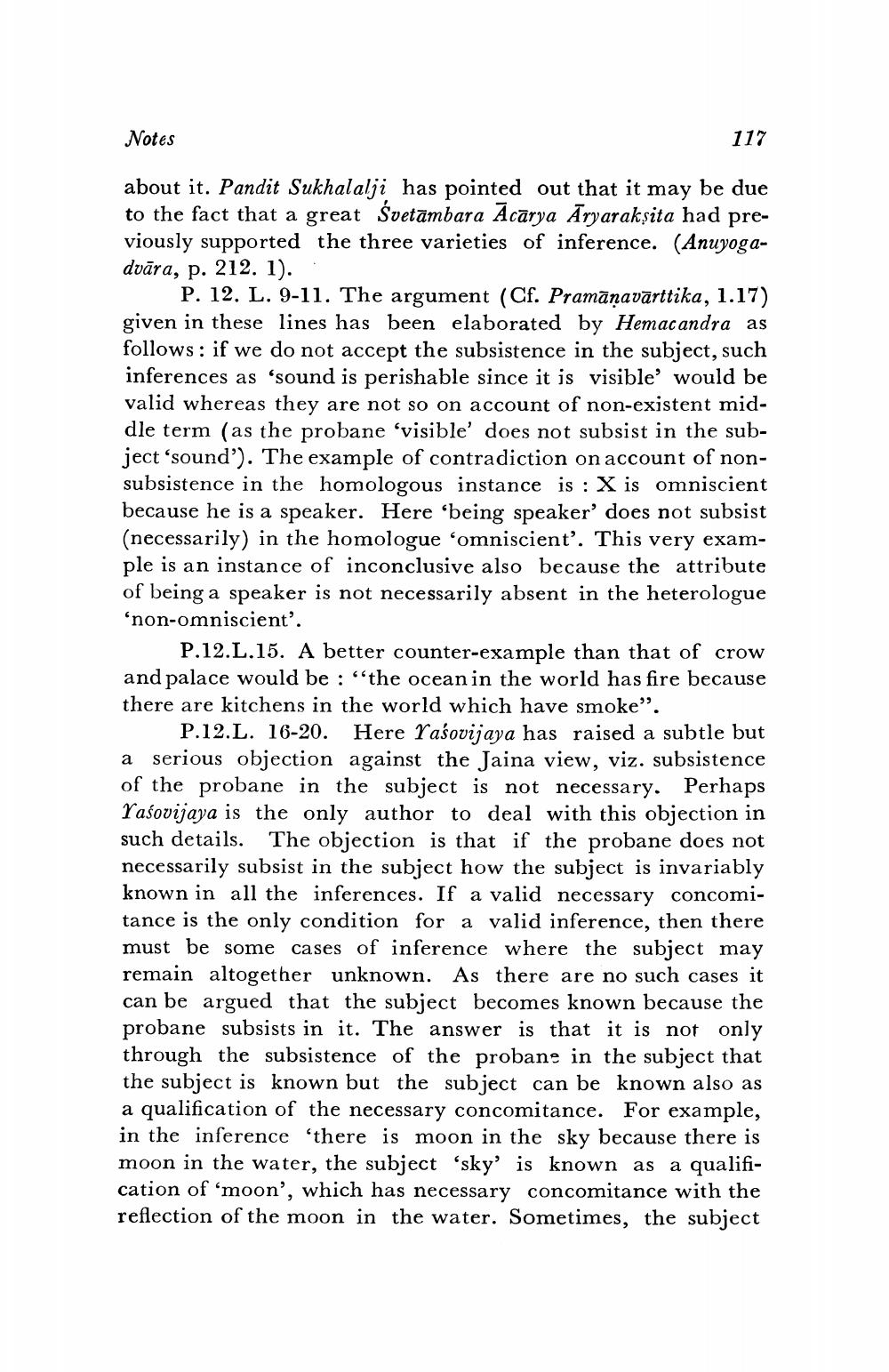________________
Notes
about it. Pandit Sukhalalji has pointed out that it may be due to the fact that a great Svetambara Acarya Aryarakṣita had previously supported the three varieties of inference. (Anuyogadvāra, p. 212. 1).
P. 12. L. 9-11. The argument (Cf. Pramaṇavārttika, 1.17) given in these lines has been elaborated by Hemac andra as follows: if we do not accept the subsistence in the subject, such inferences as 'sound is perishable since it is visible' would be valid whereas they are not so on account of non-existent middle term (as the probane 'visible' does not subsist in the subject 'sound'). The example of contradiction on account of nonsubsistence in the homologous instance is: X is omniscient because he is a speaker. Here 'being speaker' does not subsist (necessarily) in the homologue 'omniscient'. This very example is an instance of inconclusive also because the attribute of being a speaker is not necessarily absent in the heterologue 'non-omniscient'.
117
P.12.L.15. A better counter-example than that of crow and palace would be: "the ocean in the world has fire because there are kitchens in the world which have smoke".
a
P.12.L. 16-20. Here Yasovijaya has raised a subtle but serious objection against the Jaina view, viz. subsistence of the probane in the subject is not necessary. Perhaps Yasovijaya is the only author to deal with this objection in such details. The objection is that if the probane does not necessarily subsist in the subject how the subject is invariably known in all the inferences. If a valid necessary concomitance is the only condition for a valid inference, then there must be some cases of inference where the subject may remain altogether unknown. As there are no such cases it can be argued that the subject becomes known because the probane subsists in it. The answer is that it is not only through the subsistence of the probane in the subject that the subject is known but the subject can be known also as a qualification of the necessary concomitance. For example, in the inference 'there is moon in the sky because there is moon in the water, the subject 'sky' is known as a qualification of 'moon', which has necessary concomitance with the reflection of the moon in the water. Sometimes, the subject




